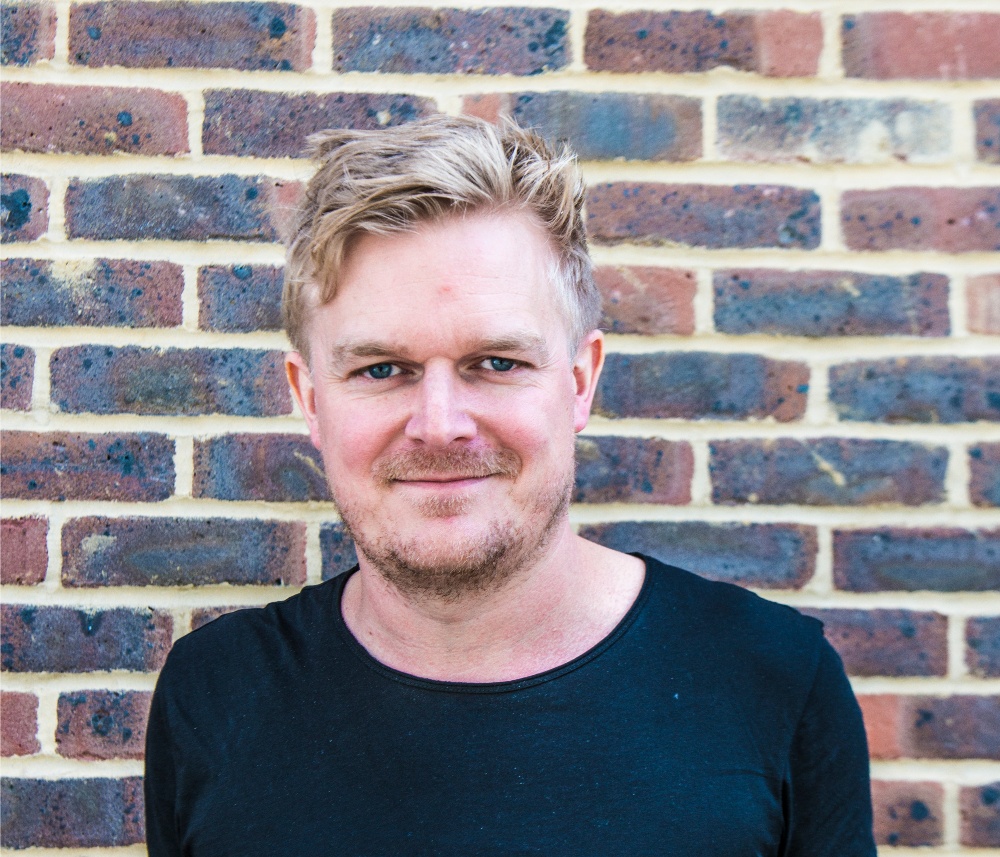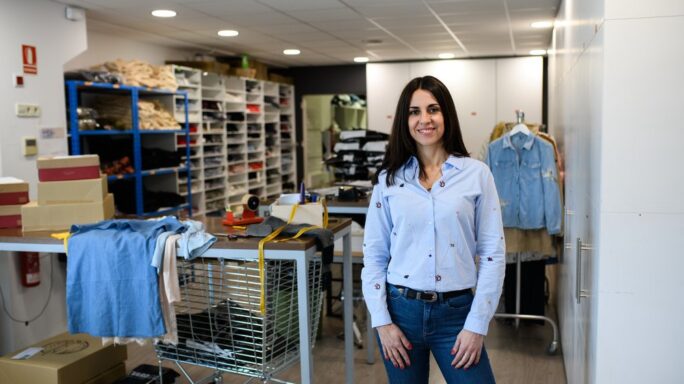Growth & Customers
MPB on bootstrapping, cash flow and building a team
New professional photography and filmmaking equipment is expensive at retail, with exceptionally low depreciation values for many years afterwards. This...

Want to keep on top of your finances while building your business? It can be tricky to get the balance right. In this interview, which is a part of a series in partnership with content creators the Startup Van, MPB.com founder Matt Barker shares his experiences and advice on bootstrapping, cash flow and building a team.
Building a business is akin to being a plate spinner. Managing cash flow, building a team and retaining staff are three such ‘plates’ that have to keep moving if you want your business to keep ticking along.
Matt Barker can appreciate this. As the founder of MPB.com, he’s learned lessons as far as cash flow and bootstrapping his business goes. He’s worked to build a team to deliver on his company’s goals. And he’s looked to retain his staff as he seeks to grow his business from strength to strength.
In doing so, the company’s focus remains the same – to provide a professional photography and film-making equipment platform for both buyers and sellers. Essentially, MPB buys, sells and trades high-value used equipment via its online marketplace.
In this interview, Matt shares insights and advice on why he bootstrapped the business for a long time, the importance of having discipline when it comes to cash flow, how he grew his employee base – he now oversees 100 employees in the UK and US, in Brighton and New York – and how he’s retained his staff.

MPB founder Matt Barker went from working by himself to overseeing a team of 100
Cash flow
As a startup, MPB.com had a perhaps protracted bootstrapping period in which it relied on traditional bank-based lending. It was only five years after it was founded, when the business was relatively mature, that Matt sought investment in return of equity.
The focus throughout the bootstrap period was simply cash flow.
“We took it a bit too far,” laughs Matt, with the benefit of hindsight. “Every single day it was, ‘We need to bring in the revenue for tomorrow. We’ve got to keep this thing going!’ We were cash-flowing half a million pounds and I don’t think the bank balance ever exceeded about £70,000 to £80,000.”
As painful as it was, Matt praises the experience. He says: “It set us in good stead and for where we are now in terms of some of the discipline that we have in the business today.”
In fact, Matt characterises his grip on cash flow in terms of growth hacking and “not worrying as much about polishing your product or your brand or any of those things”. He adds: “Because you just simply don’t have the funds to do everything at the start. We were 100% focused on ‘can we acquire customers? Can we generate revenue? Can we do that profitably?’”
This approach would pay dividends when Matt decided to attract investment, of which £8m has been raised so far. His approach during investor networking gatherings was to sit in the front row and, during the Q&A following, casually mention his cash flow figures. Investors would seek him out afterwards rather than him having to do the work.
Matt says: “If you can hack it out and show them the cash flow moving through the business in a positive fashion then that’s what people will buy into above anything. I mean it’s very difficult but in my opinion, it can put you in the best position to be raising money – whether that’s equity money or debt money.”
We’ve heard a similar story when speaking to other startup founders. The stereotype is of creating an idea then immediately seeking funding to develop the product – but Matt’s experience proves a lot more should happen before this.
He says: “The platform wasn’t that pretty. The brand wasn’t very strong. We didn’t have any kind of marketing force of any kind behind us to make anything look that brilliant. But we managed to get people spending money – creating a supply side and a demand side on the marketplace, which was absolutely critical.”
Being so close to the cash flow had another benefit: It ensured costs were kept “super, super, super low”. In fact, MPB.com had a positive profit and loss in the space of just 12 weeks.
Matt says: “It forces you to think about product in the most minimum-viable-product [MVP] way. At the very beginning you should always be thinking MVP, MVP, MVP. It doesn’t matter what it looks like. It doesn’t matter whether it’s sexy. People will choose to do something they’ve not done before if you’re doing it better, no matter how imperfect it necessarily is.”
What can you learn from Matt here? Dragons’ Den star Theo Paphitis once said: “Cash flow is king. Profit is sanity. Turnover is vanity.” There’s little doubt Matt believes the first part of that, at least, in a culture where startups will use all kinds of tricks in an attempt to inflate their balance sheets.
But Matt shows how extraordinary fiscal prudence and virtually minute-by-minute understanding of cash flow allowed him to grow his business and develop his product without any distractions. Eventually, he was able to turn this into a prize with which to recruit investors.
Matt admits that in hindsight he “probably should have actually raised funding a little earlier to invest a bit more in our product and invest a bit more marketing – and just to take the stress out of the business”. Nonetheless, before you even start planning a business, or plan your product and brand, first plan out your cash flow and work out what it will allow you to do.
Startup Stories
Facing business challenges and want some inspiration to overcome them? In this free guide, a group of business owners share their experiences and offer advice that can help you keep moving your business forward.

Building a team
Matt was completely on his own while initially building the cash flow-positive business, while also simultaneously developing the product and proving market fit. However, as soon as he’d raised his first funding – a mere £200,000 via a bank loan – he began recruiting. “I just needed people,” he says.
As with any retail operation, as many hands as possible were required for operations and customer service but again cash flow dictated what happened next.
Matt says: “Every time I brought someone in it was just simply a question of: ‘Can I cash flow it? Are they going bring it enough value add to the business in terms of revenue? Is the revenue going to exceed their monthly wage?’”
The business grew to seven people over the space of 2011, with an abundant labour market full of graduates at that time benefiting the business. This allowed Matt to invest in his people from day one.
He says: “I was always looking beyond. In the future, how is this person going to be useful to me when I can justify using their skills that they actually have? The first person I employed I put on very simple dispatch work. I knew he was a strong graphic designer. And he’s still with the company today as our head of brand and design in the marketing team, some seven years on.”
In fact, two of the current board members date from that period, with the other running the US office.
When it comes to building a team, Matt’s advice is simple.
“Be nice,” he says. “Treat people as you would expect to be treated and inspire them at the same time. You have to learn quickly as leader to keep things interesting and exciting, and to keep people inspired. It’s surprising how you can do the small things, lots of nice small things will get you a lot further.”
What can you learn from Matt about recruitment? He clearly values his employees and he values what they can bring to the business.
A startup demands loyalty because the going can often get rough. But by investing in people and plotting their potential future in the business, Matt ensured he invested in them too – and that he was therefore repaid in loyalty by the bucketful.
He talks about his pride in how staff were able to “flourish”, almost as if it is a side effect that those very people grew his business and created conditions for it to succeed.

One of the many products that features on MPB’s platform
Retaining staff
When the staff count reached 80 or so, Matt had little choice but to bring in HR assistance. Nonetheless, he was conscious about preserving the company’s unique positive culture. In fact, its small business ethos lives on in a perhaps surprising way.
Matt says: “I think it helps that we’re split. We’re a hundred people across three offices: 50 in one office, 25 in another and 25 in another. They still feel like quite small units when you’re at each and I spread my time across them. That really helps. It doesn’t quite feel to me that we are as many people as we are.”
The company has retained staff “extraordinarily well”, says Matt, although he admits “you have to reward people, you have to buy them in”.
As such, and as with many startups, Matt incentivises his employees with equity options, with the aim of “creating a liquid exit position” because, he notes, the value of startups only really exists on paper.
Options are a basic recruiting tool for C-suite positions now the business is growing, he adds, although “an above average number” of other staff also benefit.
He adds: “There’s the absolute star performers that you just would never want to lose and make sure they’re rewarded effectively. But actually there’s another side where there’s just some brilliant, loyal staff who’ve been with us for four or five years who I just felt deserved it.”
What do we learn from Matt here? Simply that generosity pays dividends, especially in younger businesses that are still inherently personal and essentially built around a community of like-minded employees.
Matt remains the majority shareholder in his business, even after the various rounds of investment, but he’s prepared to share equity with his employees to create value for them – and for him.
Cash flow is (still) king
Despite the extraordinary success and growth of MPB.com, Matt hasn’t lost touch with cash flow, of course, and it remains topmost in his mind.
“Just keep it as close to you as you possibly can,” he says. “You should be able to quote how much money is in the bank, how much money you’re expecting to come in tomorrow, and how much you’re expecting to go out without having to sieve through a whole load of stuff.
“You should always know how much you’ve got and how much you owe and how much you’ve got coming in. Never ever treat that lightly because everything moves very quickly as you scale up. You can get yourself into trouble quite easily otherwise.”
Startup Stories
Facing business challenges and want some inspiration to overcome them? In this free guide, a group of business owners share their experiences and offer advice that can help you keep moving your business forward.







Ask the author a question or share your advice